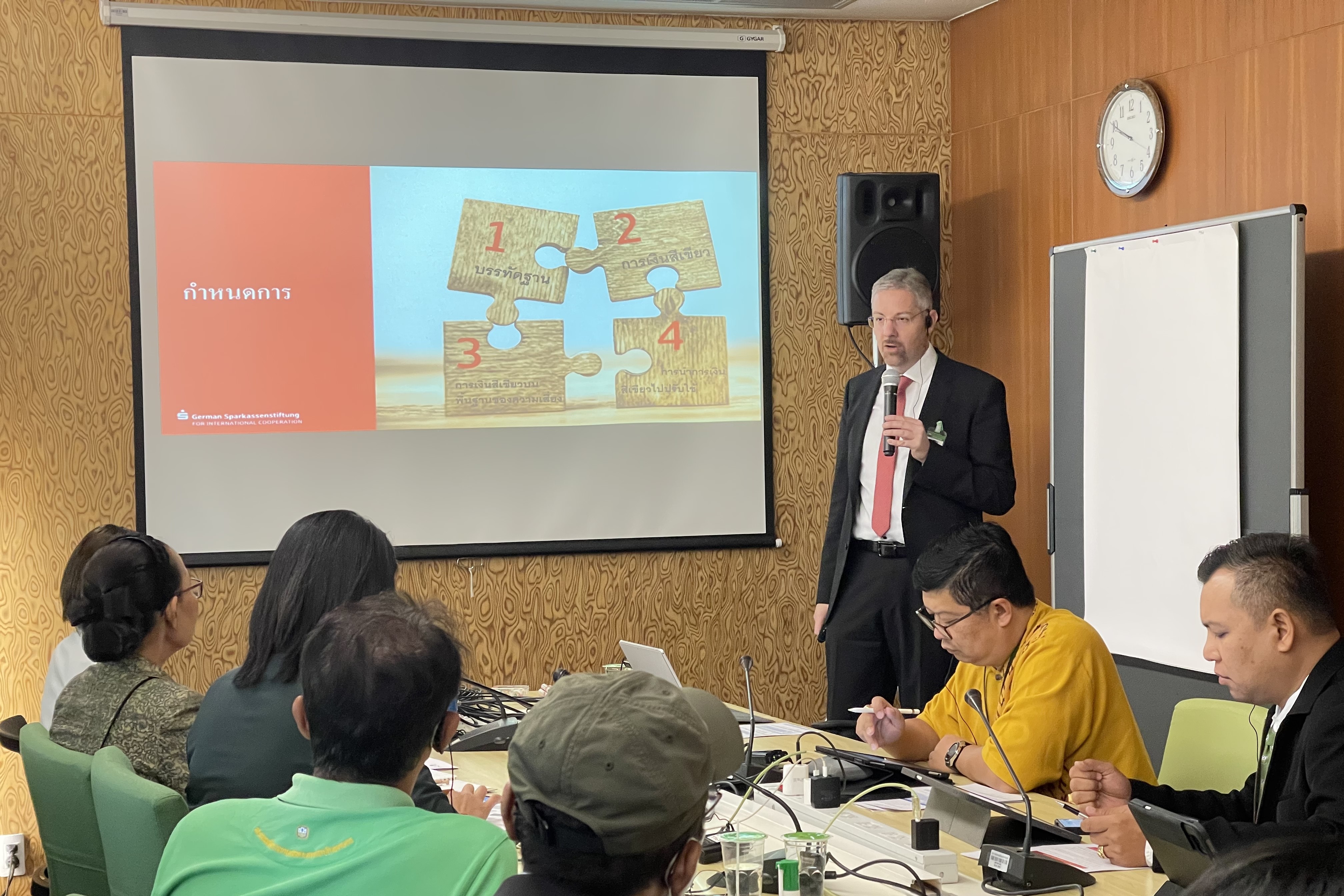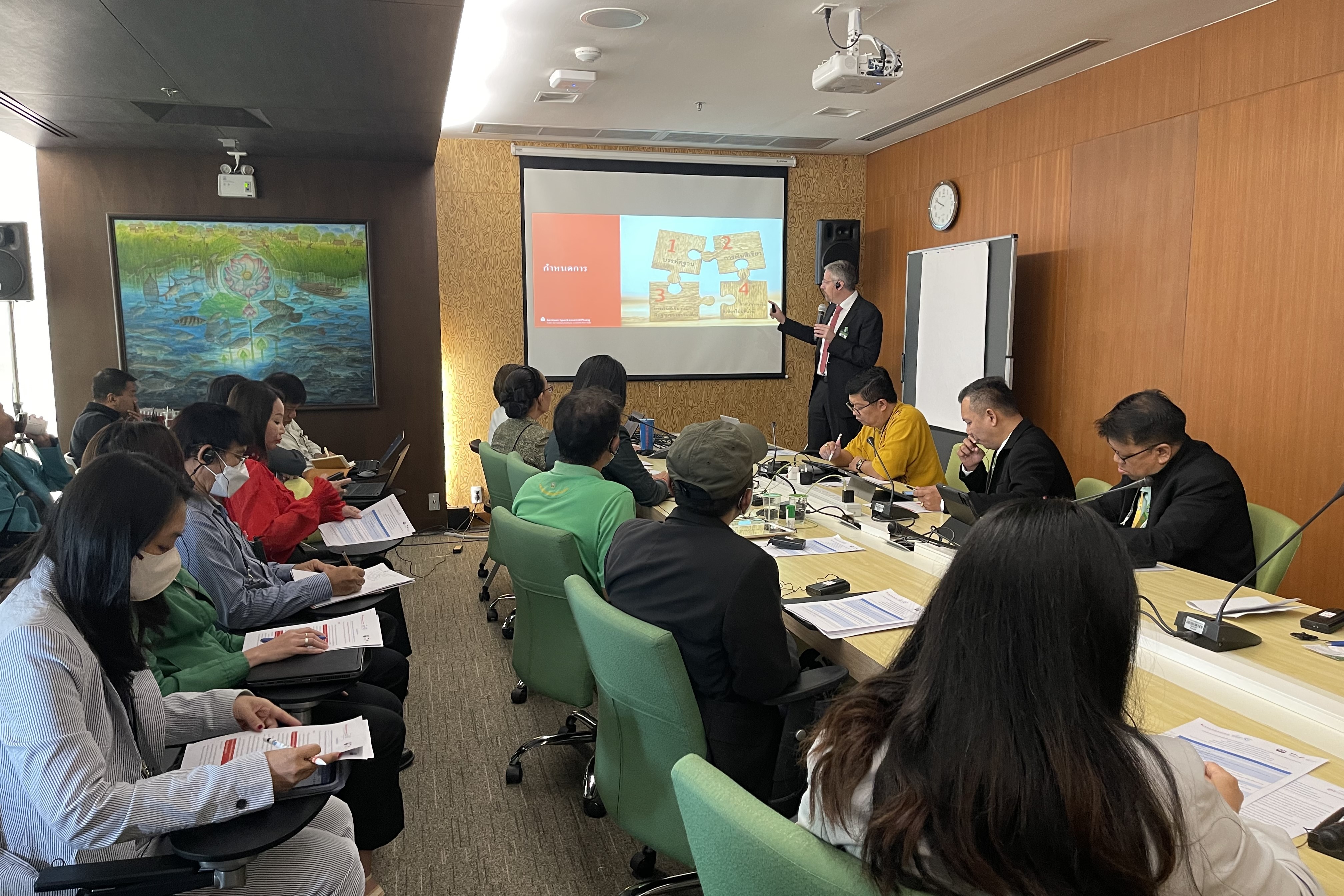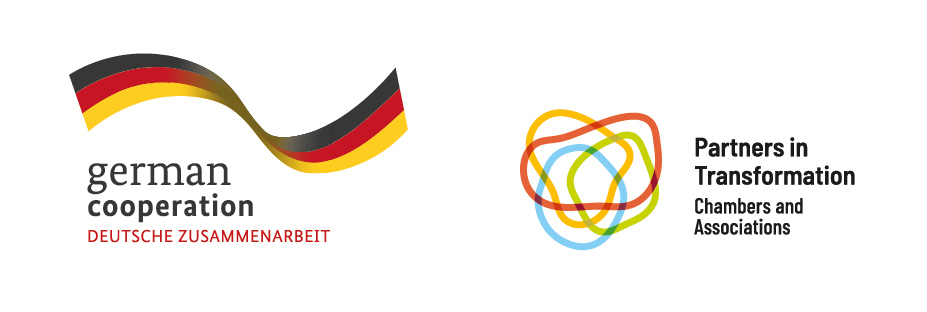The German Sparkassenstiftung for International Cooperation (DSIK) Southeast Asia, in collaboration with the economist and finance expert, Professor Dr. Tobias Peylo of Kempten University of Applied Sciences, organized two impactful green finance workshops in Bangkok.
The first workshop, held on October 26, brought together key representatives from the Bank of Thailand, the Ministry of Finance, the Government Savings Bank (GSB), the United Nations Economic and Social Commission for Asia and the Pacific, the Securities and Exchange Commission, and various Thai commercial banks. Discussions delved into crucial topics, including corporate sustainability in the face of global environmental challenges, the transition to a greener economy, sustainability concepts, and effective management of Environmental, Social, and Governance (ESG) risks and opportunities.
The following day, another workshop took place in collaboration with GIZ Thailand, as part of the "Innovative Climate Risk Financing for the Agricultural Sector in the ASEAN Region (AgriCRF)" project. This session, involving approximately 40 participants, explored similar themes. Notably, the agricultural sector contributes around 20% to global greenhouse gas emissions, while simultaneously being highly susceptible to the impacts of climate change. This dual role underscores the importance of sustainable agricultural practices that mitigate and adapt to climate change.
The workshops also introduced two tools developed by Dr. Tobias Peylo, which will be implemented collaboratively in partnership with the German Sparkassenstiftung: The Risk Radar and the Green Finance Compass. The Risk Radar enables financial institutions to analyze climate-related and other ESG (Environmental, Social, and Governance) risks within their credit portfolios and serves as the starting point for managing ESG risks. The Green Finance Compass helps to assess the status quo of the Green Finance Implementation in Financial Institutions. On that basis, the Green Finance Compass helps the Financial Institutions set adequate targets and pursue them coherently.
These solutions were thoroughly discussed during the workshops, with DSIK committing to support financial institutions in their implementation. As Thailand faces the dual challenge of managing climate change risks and seizing climate-related opportunities, these initiatives represent a significant step toward a greener, more sustainable financial sector, poised to address the complexities of our changing world.
Thailand has been identified as one of the most climate-vulnerable countries in the Asian Development Bank's 2021 Country Partnership Strategy, joining a list of 16 nations facing extreme climate risks in the coming three decades. In response to this pressing concern, the Bank of Thailand took a crucial step by releasing a policy statement on February 15, 2023, titled "Internalizing Environmental and Climate Change Aspects into the Financial Institution Business." This policy underlines the critical importance for Thai companies and financial institutions to integrate climate change opportunities and risks into their core operations. The workshops serve as a declaration by DSIK to dedicate its efforts to combatting climate change.



